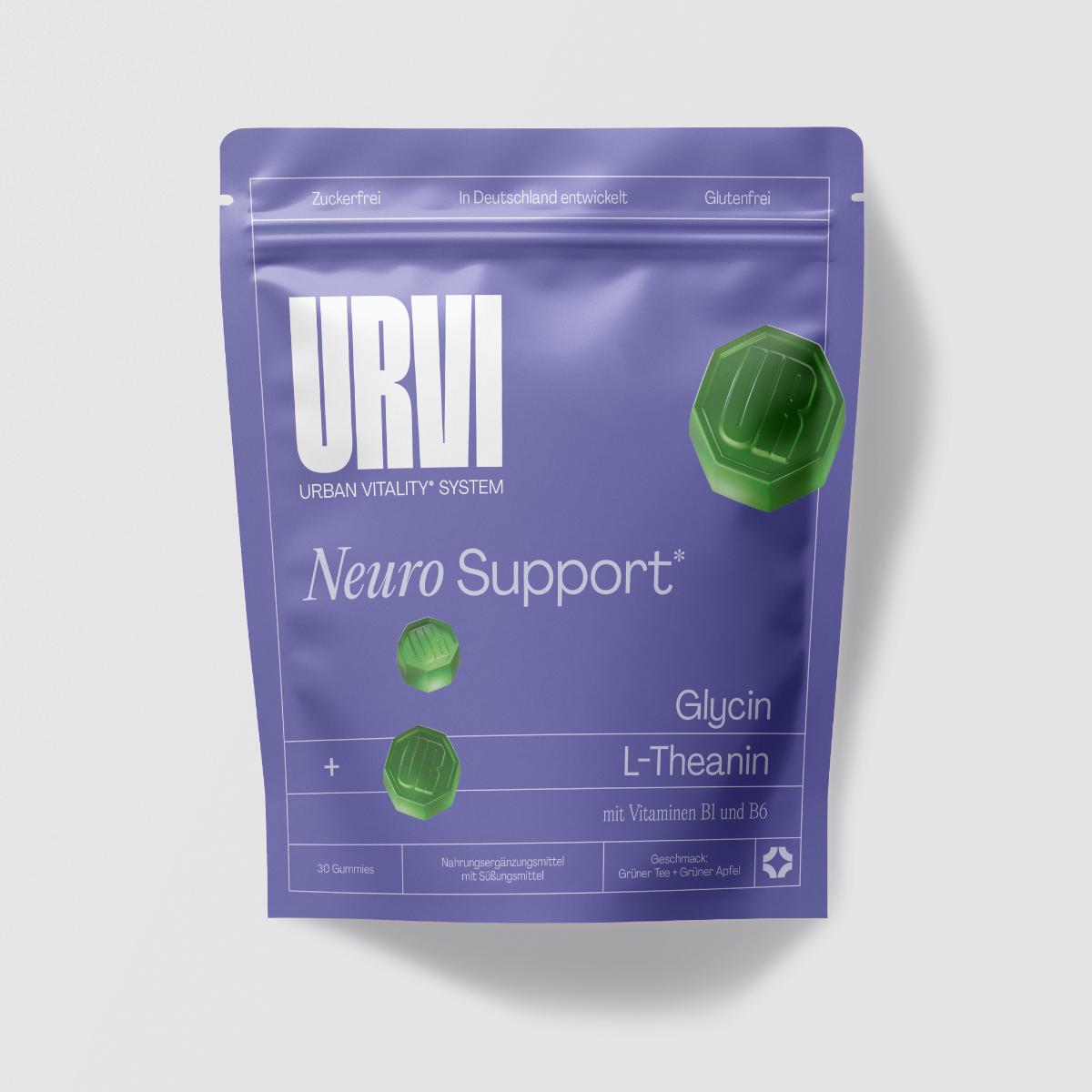Caffeine works by blocking the molecule adenosine – a neurotransmitter in the body that signals fatigue. As long as this signaling pathway is inhibited, your nerve cells remain active, dopamine release increases, and you feel more alert, focused, and productive. The good news: Contrary to a widespread myth, coffee in moderate amounts is not dehydrating; with regular consumption, it even contributes to your daily fluid intake [1] .
But this artificially prolonged activation has a downside. The central nervous system is put into a sustained state of arousal. Blood pressure rises, heart rate accelerates, and the autonomic nervous system switches into what's known as "alarm mode," even when objectively there is no danger. This can be helpful during periods of acute stress. However, if you consume caffeine several times a day, you're throwing this very system out of sync.
Studies show that high doses of caffeine increase the release of stress hormones such as cortisol, thus promoting neuronal hyperactivity, especially in people with increased daily stress [2] . At the same time, the natural sleep-wake rhythm can be disrupted: The prolonged waking phase makes it difficult to fall asleep and shortens the portion of deep sleep [3] .





